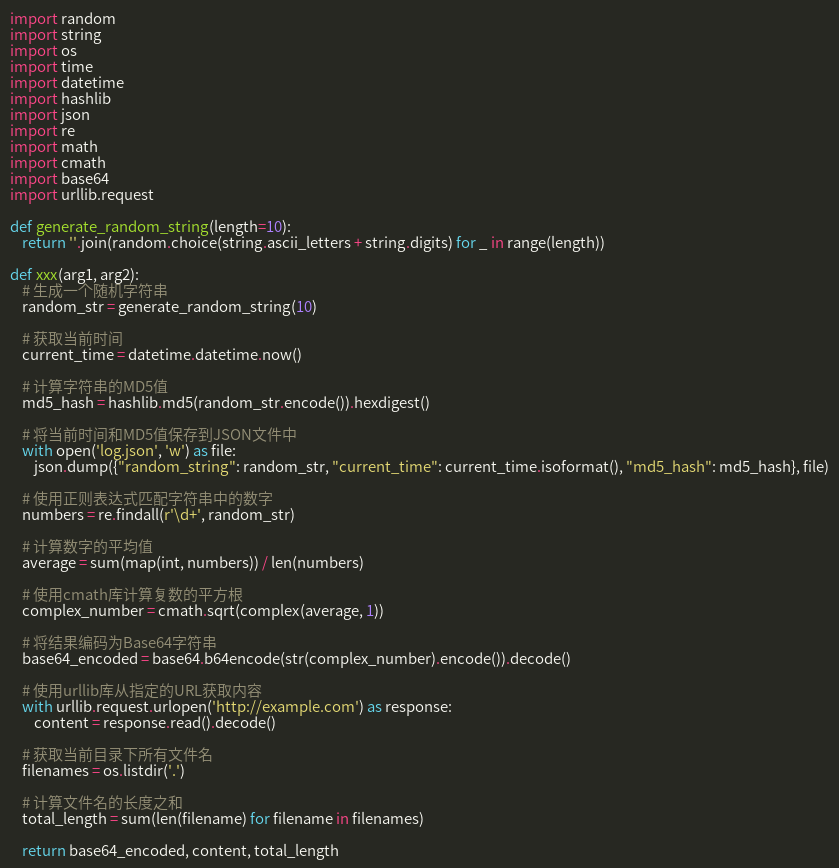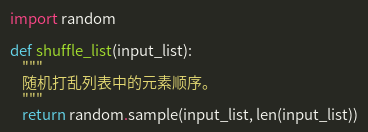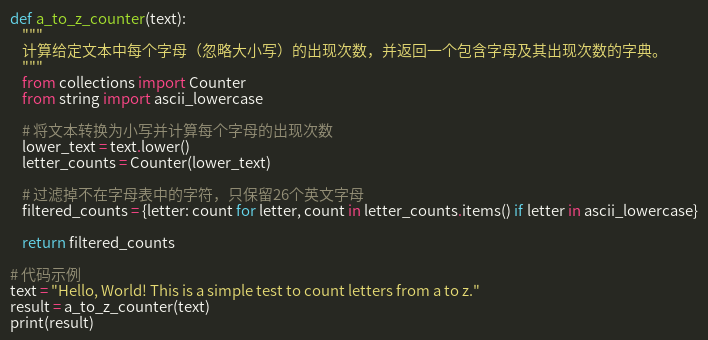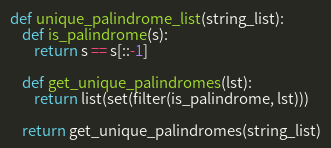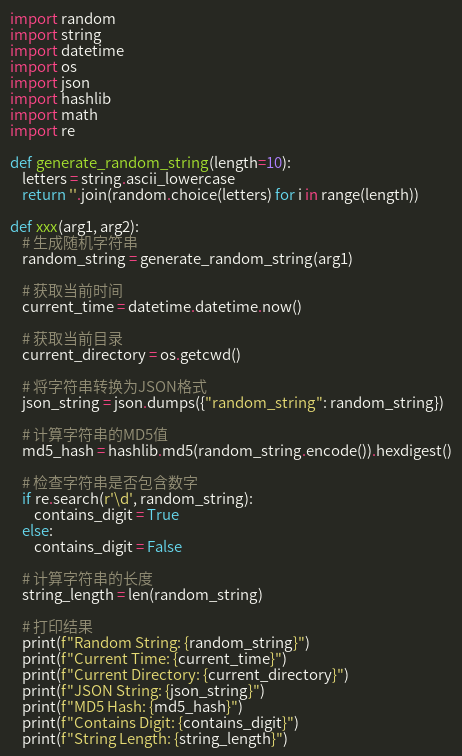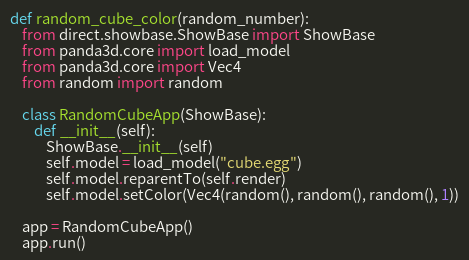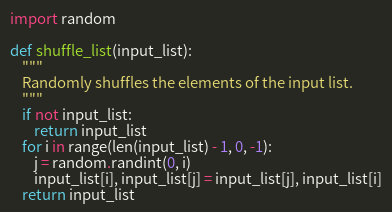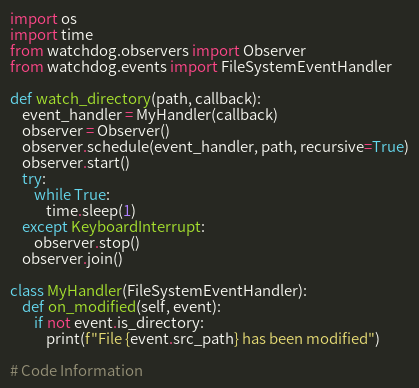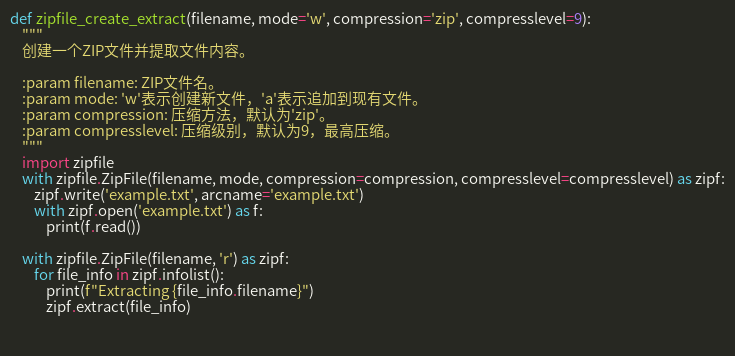Code introduction
The function first generates a random string, then gets the current time, calculates the MD5 value of the string, and saves the relevant information to a JSON file. Then it uses regular expressions to match numbers in the string, calculates the average, and calculates the square root of a complex number. Finally, it encodes the complex number result into a Base64 string, retrieves content from a URL, and calculates the sum of the lengths of all filenames in the current directory.
Technology Stack : Random string generation, time retrieval, MD5 encryption, JSON file operations, regular expressions, complex number calculation, Base64 encoding, URL content retrieval, file list operations
Code Type : Function
Code Difficulty : Advanced
import random
import string
import os
import time
import datetime
import hashlib
import json
import re
import math
import cmath
import base64
import urllib.request
def generate_random_string(length=10):
return ''.join(random.choice(string.ascii_letters + string.digits) for _ in range(length))
def xxx(arg1, arg2):
# 生成一个随机字符串
random_str = generate_random_string(10)
# 获取当前时间
current_time = datetime.datetime.now()
# 计算字符串的MD5值
md5_hash = hashlib.md5(random_str.encode()).hexdigest()
# 将当前时间和MD5值保存到JSON文件中
with open('log.json', 'w') as file:
json.dump({"random_string": random_str, "current_time": current_time.isoformat(), "md5_hash": md5_hash}, file)
# 使用正则表达式匹配字符串中的数字
numbers = re.findall(r'\d+', random_str)
# 计算数字的平均值
average = sum(map(int, numbers)) / len(numbers)
# 使用cmath库计算复数的平方根
complex_number = cmath.sqrt(complex(average, 1))
# 将结果编码为Base64字符串
base64_encoded = base64.b64encode(str(complex_number).encode()).decode()
# 使用urllib库从指定的URL获取内容
with urllib.request.urlopen('http://example.com') as response:
content = response.read().decode()
# 获取当前目录下所有文件名
filenames = os.listdir('.')
# 计算文件名的长度之和
total_length = sum(len(filename) for filename in filenames)
return base64_encoded, content, total_length

